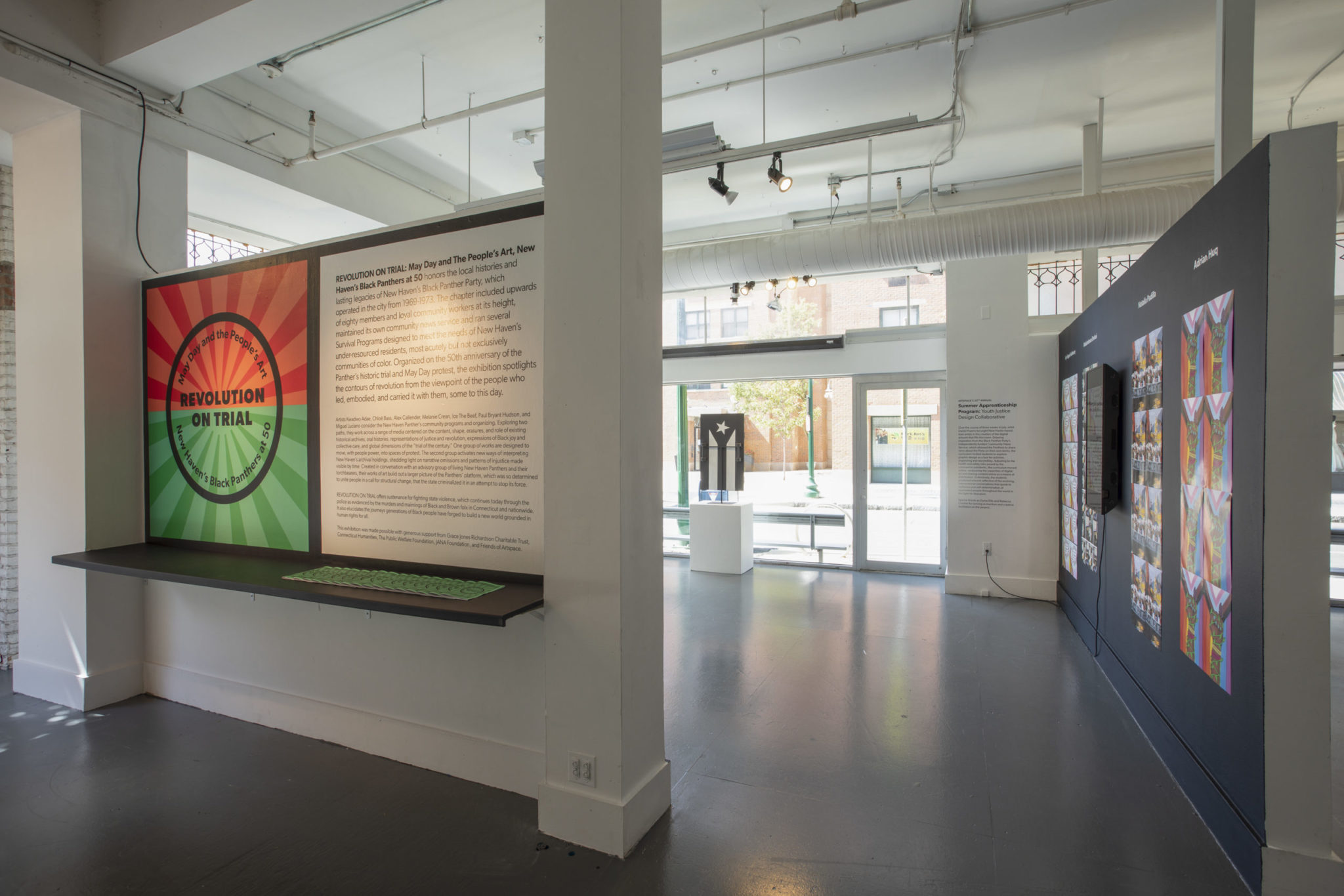
Courtesy of Jessica Smolinski
In 1969, the murder of Black Panther Party member Alex Rackley set in motion the New Haven Black Panther trials — a series of criminal prosecutions against members of the Party. Now, 50 years later, the podcast “Revolution on Trial” dives into an account of the trials.
Co-produced by Artspace New Haven and the Narrative Project, the podcast is an eight-part series featuring interviews with Panthers and recordings of events during the trial. It is part of Artspace’s larger “Revolution on Trial” exhibition, which commemorates the trials’ 50th anniversary. Mercy Quaye, founder of the Narrative Project, conducts the podcast.
“If you are a New Haven native, chances are you’ve grown up hearing folks talk about this one way or another,” Quaye said. “Your parents or your uncles or your aunts say ‘Everything’s been different since the Panthers,’ without really having a deeper understanding of what the Panthers did here in New Haven.”
According to a press release on the Artspace website, the exhibition examines events as “an exchange of power” between state control and demands to dismantle racial oppression and colonization, rather than “a historic event in isolation.”
“The beauty of the podcast is that you hear from people representing different generations — I’m confident any young activist will benefit from hearing these incredible stories of the past,” said Artspace Executive Director Lisa Dent.
The Black Panther Party’s New Haven chapter began with Black Panther member Ericka Huggins’ arrival in the city. By that time, the party was already well-established with members in the city. After interacting with Huggins, party organizers asked her to bring a chapter of the Black Panthers to New Haven.
During Huggins’ time in New Haven, the Panthers suspected that Rackley was an FBI informant. Some Party members interrogated him and he was later found murdered in Connecticut. Following Rackley’s killing, Huggins and other party members were put on trial for murder and conspiracy charges. This included Bobby Seale — the Black Panthers’ co-founder and national chairman — who was in New Haven to give a talk during the murder.
As Quaye contemplated the sensitivity of the subject matter while creating the podcast, she turned to her background as a reporter. Quaye noted that crafting the podcast included being authentic in her recounting the history of the Party.
“Recognizing that I am a [New Haven] native, I have a unique perspective of the history of the New Haven Black Panthers,” Quaye said. “So I took the perspective of asking, what did I learn about the New Haven Black Panthers growing up and how can I apply that to the story here?”
The podcast offers a historical perspective of a group confronting institutional oppression.
“So far this summer, folks have been diving into the episodes and learning all they can about the history [of the New Haven Black Panthers],” she said. “We’ve seen folks from California to Georgia to Chicago and beyond really dive into and submit commentary about the podcast. Being in a time of racial and civil unrest in our country, this is the perfect time to be able to explore these histories that often go overlooked.”
Quaye founded the Narrative Project in 2015.
Marisol Carty | marisol.carty@yale.edu







